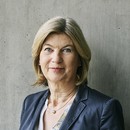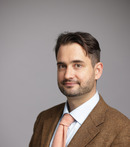Portrait of the Department
Chair of Prof. Dr. Martin Schulze Wessel
It is not only since the events of recent history that research into the history of East Central and Eastern Europe has been a central element in understanding this highly complex region. The focus of teaching and research at the Chair is on questions of religious history, imperial history and the politics of memory, as well as transnational relations and social movements. These research interests are also reflected in the numerous qualification theses supervised at the Chair and in the third-party funded projects.
From a local and temporal perspective, the Chair focuses on the recent and latest history of East Central and Eastern Europe (i.e. Ukraine, Russia, the Soviet Union, Poland, the Czech Republic, Slovakia). In addition, the contemporary history of the region plays an important role in research and teaching.
Chair of Prof. Dr. Andreas Renner
For a long time, Russia as a European power, as a "belated" industrial nation, as a flowering of European culture, or as an adversary in the East-West conflict remained the standard topics of European/Western Eastern European studies. Only with the renaissance of empire studies in the 1990s did the Tsarist Empire and the Soviet Union come back into view not only as multi-ethnic empires, but also as the largest and thus influential state in Asia. In its history, there have time and again been “turns” eastward, towards the Asian-pacific area – also since 2014 with regards to the Sino-Russian rapprochement after Russia’s annexation of Crimea.
The unique concept of the Chair of Russian-Asian-Studies examines both the areas, inhabitants and cultures of the Tsarist Empire (or the USSR), however they are defined as Asian, and Russia's interconnections with its Asian neighbours in the past and present. Geographically, the focus is on the land mass between the Black Sea, the Arctic Ocean and the North Pacific, chronologically on the period after the conquest of Siberia in the 17th century. However, Russian-Asian-Studies not only analyses cross-border processes and contexts, but also crosses disciplinary boundaries between Eastern European Studies and neighbouring fields of research such as Turkology, Sinology and Japanese Studies.
Professorship of Prof. Dr. Marie-Janine Calic
Over the millennia, a unique socio-cultural diversity has developed in Southeastern Europe. No matter which century one looks at, the historical mix in "the Balkans" is complex. The professorship covers the general history of this region in its thematic breadth and historical depth dimension in teaching and research (including the third-party funded projects and qualification theses linked to the professorship). The development and transformation of Southeast Europe are examined anew, especially from the perspective of transcultural relations and global history.
A special focus is currently on the history of the Cold War as well as the history of Yugoslavia and its successor states (Slovenia, Croatia, Bosnia-Herzegovina, Serbia, Macedonia, Montenegro, Kosovo). This includes research on ethnic minorities and the national question in the Balkans, on conflict prevention, reconstruction and international peacekeeping, as well as on the politics of memory and the past. The role of the EU in the Western Balkans must also be constantly rethought in the light of current developments.
Professorship of Prof. Dr. Máté Rigó
Modern Southeast and East-Central Europe have long been at the intersection of multiple imperial and nation-building projects and have proven to be key sites to understand European history more generally, including modern nationalism, the genesis of the two World Wars and the Cold War. The professorship thus integrates the study of these regions in European and global history broadly speaking, with a focus on histories of capitalism, social networks, and international organizations as engines of these interconnections.
More than three decades after the fall of the Iron Curtain, we are able to move beyond Cold War divisions of European history into East and West and focus on transnational connections and comparisons across regional and national histories that have not usually been compared. How did women and men wield agency to foster connections across rigid boundaries and borders? How did the trajectories of societies in Southeast Europe connect to the history of the Mediterranean? The geographical emphasis falls on the histories of the Austro-Hungarian Empire and its successor states, especially Romania and Hungary, and the involvement of societies in processes of total war, nationalization, decolonization, and building state socialism.
Professorship for History of East Central Europe and Russia in the pre-modern period
The professorship, established in 2016, complements LMU's profile in the field of the history of Eastern and Southeastern Europe. With its focus on the history of East Central Europe and Russia in the pre-modern period, it is unique in the German-speaking university landscape. The professorship not only strengthens the pre-modern era within Eastern European history, it also contributes to broadening the geographical focus of general early modern research by embedding the history of East Central Europe and Russia in the pre-modern era in the trans-economic and trans-cultural history of Europe.
In research and teaching, approaches of political, social, religious, economic and cultural history as well as the history of knowledge and science are pursued. A central concern is to strengthen environmental historical perspectives, which have so far played only a marginal role in research on the history of Russia and East Central Europe before 1800. In doing so, the professorship takes into account the heterogeneous and multi-ethnic character of East Central Europe and Russia by giving great weight to the history of minorities in teaching and research.




